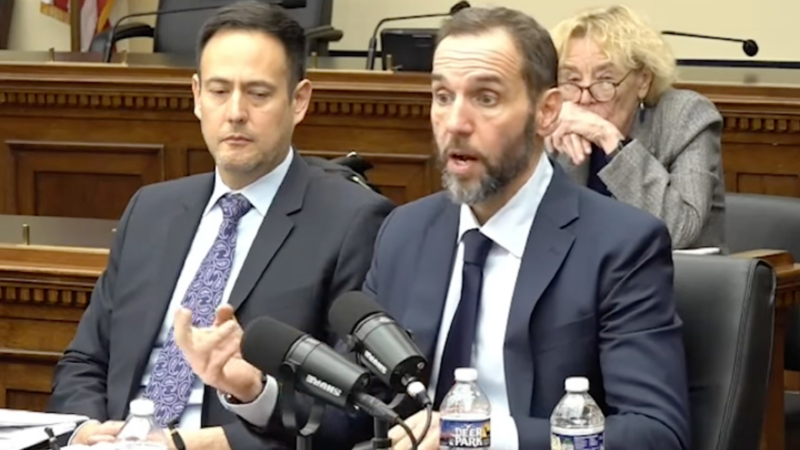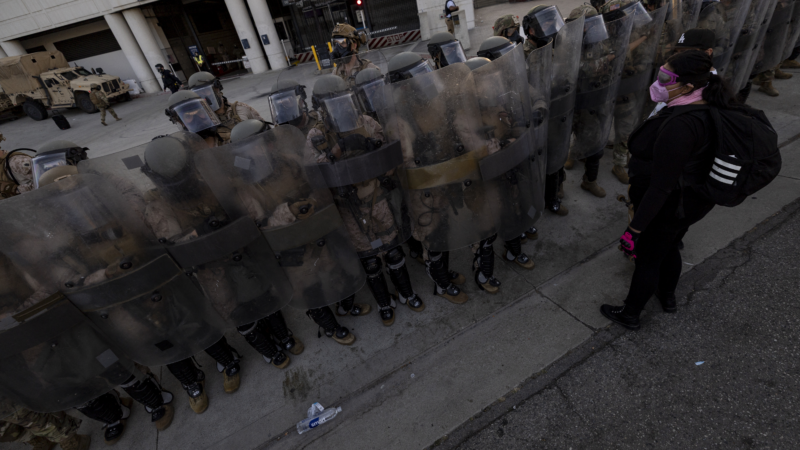How to get what you want without using cash (you read that right)
For many of us, when we see something we want, we pull out our cards and swipe for it.
But for Cyndi Benitez, manager of the Okanogan Family Barter Faire in Washington state, her handmade soap is her currency. She exchanges it for things like tea, honey, earrings and scarves.
She even barters with a family of local hunters. “Around October, when they’re done hunting, they’ll get a hold of me and say, ‘we have deer fat.’ I’ll render it to make soap and trade them back with soap,” she says.
Bartering can be a resourceful way to get what you need without using cash, while also creating community, say experienced traders like Benitez.
“It allows us to get back to those roots as human beings who care about each other, who believe in reciprocity, solidarity and balance,” says Jessica Gordon-Nembhard, a professor of community justice and social economic development at John Jay College, City University of New York.
If you’re interested in trying it out, barterers share real-world tips on how to get a fair deal — and how to bring up the possibility of trading with others.
Come up with something to swap
Think about the things in your wheelhouse you’re willing to trade that others might genuinely desire or need, Benitez says. That includes:
👖 Homemade goods and creative hobbies. If you’re into sewing, maybe you hem or mend someone’s pants. If you’re an artist, maybe you barter watercolor portraits.
🥒 Food. It’s always a popular choice, our experts say. Exchange surplus carrots from your garden or eggs from your chickens.
📱 Skills you use to make a living. Theo Mendez, who has worked in the business side of the music industry, teaches his friend how to market himself as a musician in exchange for songwriting lessons. “It’s been two years and we enjoy each other’s help,” he says. (Keep in mind: If you barter more than $600 of your business services in the course of a year, you will need to declare that on your taxes, according to the Internal Revenue Service.)
Anything is fair game as long as there’s a market for it. Organizers of the Okanogan Family Barter Faire, which facilitates the exchange of an estimated $250,000 worth of goods and services each year, say their participants trade everything from furs to jewelry to massages to big-ticket items like cars.
Find people who are willing to trade with you

Bartering is not a solo endeavor and you’ll need to find folks who are willing to engage, say the traders who we spoke to for this story.
But you don’t have to look far. Think neighbors, friends, coworkers and groups you’re already a part of like religious or community organizations. Then reach out.
Alannah Hurley, who is Yup’ik and grew up with a rich tradition of bartering in Alaska Native communities, suggests a simple line: “Would you ever be open to trading?”
In her experience, people are more open to bartering than you might think. The idea “perks people’s ears, like, ‘ooh, intriguing,'” and they start thinking about what they can swap, says Hurley, who has traded for foods like salmon, caribou and herring eggs.
Don’t be afraid to turn a purchase into a swap. If someone in your community is selling something you want, Hurley says you might say something like, “We could do this in cash, or I have a more exciting idea: What about bartering for it?”
Of course, their answer could be no. But Hurley says the goal is to open the door to the possibility of bartering.
Create a fair trade
Let’s say you’re a massage therapist and your neighbor is a carpenter, and you’ve agreed to swap services. How do you make a fair trade?
Have a conversation about the arrangement — and don’t be afraid to ask the other person what they think, Hurley says. How many massages would feel equal to the labor involved in, say, redoing your back porch?
You want both parties to know about the work that goes into a barter, Hurley says. Sometimes there’s a lot of attention and labor happening behind the scenes. “Whatever the trade looks like, you want it to be respectful and reciprocal of time, effort and energy.”
Keep at it, and you might be surprised by the outcome.
Jan Nelson has been bartering with her neighbors in Wisconsin for 40 years. She says the key to a long-term arrangement is to “return that favor, but one-up it. Give them something that’s maybe a bit more personal.”
Nelson has returned favors by giving her neighbors handmade mittens and hats. “You don’t start out by saying, ‘Oh, you look like you need help’ You start out by asking for help, then returning it in kind, plus one,” she says.
This episode was produced by Clare Marie Schneider. The digital story was edited by Malaka Gharib. The visual editor is Beck Harlan. We’d love to hear from you. Leave us a voicemail at 202-216-9823, or email us at [email protected].
Listen to Life Kit on Apple Podcasts and Spotify, and sign up for our newsletter. Follow us on Instagram: @nprlifekit.
Zohran Mamdani sworn in as New York City mayor, capping historic rise
Mayor Zohran Mamdani took the oath of office in New York City after midnight Thursday. The city's first Muslim mayor, a member of the Democratic Socialists of America, has promised to focus on affordability and fairness.
Rising from the ashes, a symbol of hope at the Rose Parade
Survivors of the Eaton and Palisades Fires find healing and community working on a Rose Parade float to honor the lives and communities lost in last year's wildfires.
The history behind the NYC subway station chosen for Mamdani’s swearing-in
The city shut down the station in 1945 on New Year's Eve. Eighty years later, it's a symbolic venue choice for the incoming mayor's private swearing-in ceremony.
U.S. military strikes 5 more alleged drug boats, killing 8
The U.S. military says it struck five alleged drug-smuggling boats over two days. The attacks killed eight people, while others jumped overboard and may have survived. U.S. Southern Command did not reveal where the attacks occurred.
Capitol riot ‘does not happen’ without Trump, Jack Smith told Congress
Former special counsel Jack Smith also described President Trump as the "most culpable and most responsible person" in the criminal conspiracy to overturn the 2020 election results, according to a transcript of Smith's closed-door interview with the House Judiciary Committee.
Trump will drop push for National Guard deployments in Chicago, LA and Portland, Ore.
Courts blocked troops from deploying in Chicago and Portland, Ore., and the Los Angeles deployment effectively ended after a judge blocked it earlier this month.






